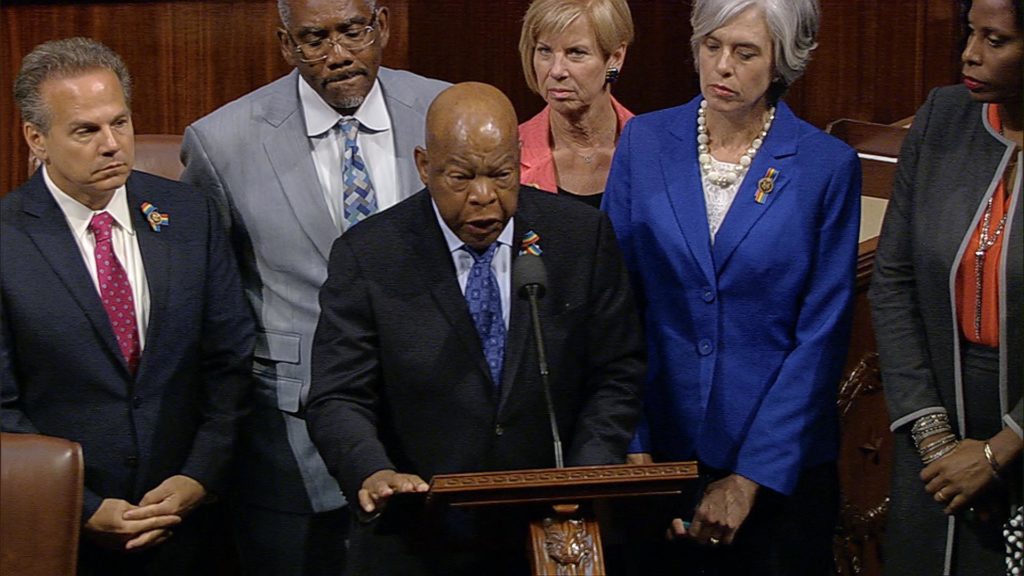Dear friends,
I share your frustration and your anger over the outcome of the Democratic (?) National Convention. I’ve had my share. There is a place for anger; but there is also a way to use it. Anger is power. The revolution launched by Senator Sanders has accomplished amazing results. The point is now to recognize the beauty and power of our momentum — and, as Martin Luther King, Jr. says, harness our anger “under discipline,” meaning convert it into determination. Let’s think what that might look like now.
Senator Sanders has announced that he will create a support base for progressive candidates for local and national offices. That is the perfect role for him. But our role is even bigger. Remember what President Johnson said when MLK urged him to give the nation a voting rights act: “That’s a great idea. Now go out and make me do it.”
A prominent Republican, as he was bolting the party, said Donald Trump is not just a political mistake but “an indictment of our character.” I would say it’s an indictment of our culture. The real revolution is not just political; it’s cultural. As long as people are bombarded by 3,000-5,000 commercial messages a day (according to recent studies) telling us we’re separate, material beings who need to plunder the Earth for satisfaction and fight one another for security, specters like Donald Trump will arise, and we will be fighting a rear-guard action to keep them out of power. We need a “new story” about humanity and our place in the universe.
The good news is a “new story” is being talked up in various circles. It’s based squarely on two supports: the best of modern science and the perennial wisdom that has supported every human tradition, from Jesus to Gandhi. Taken together, this story says we are not alone in the universe. The same human agency that’s degrading the Earth can also restore it; the same humanity that’s blowing up in violence all over the planet can also learn and practice nonviolence. Learning this story and how to use it, patiently and persuasively, to explain why we’re against war and for a beloved community on a healthy planet should be part of every activist’s toolkit today.
We now have the technologies to stay connected in ways that were never possible before. Great. Don’t use them as a substitute for face-to-face relationships, but use them to, for example, start a discussion on strategy that we can all work on together, taking us from our present baffling but in some ways amazing situation all the way to the distant vision of peace and justice for all. A joint strategy doesn’t mean everyone working on the same issue, but rather, as I see it, situating our issues on a progressive (in both senses) trajectory, starting from things that are hard but doable, to things that seem undoable now but will eventually appear as inevitable. It would certainly include what Joanna Macy calls “stopping the worst of the damage,” which means the climate. We’ll carry on with the creative blend of legal argumentation and downright obstruction we saw in the “kayaktivism” that kept Shell from drilling the Chukchi Sea last June — but at the same time, do things that not only block the future we don’t want, but build one we do.
I can see one trajectory for this that starts with establishing restorative justice as a norm in the nation’s schools (it’s already happening in more enlightened districts), then goes on to do the same for the prison system, and then we set our sights on the war system. All this would be supported by a steady drumbeat of explanation about human nature and our intimate relationship to one another and the planet.
Other trajectories would move similarly from achievable to apparently distant goals, all based on that common vision. Let’s not get hung up on whether we should vote for Hillary Clinton or Jill Stein. From Occupy to the Bernie Sanders movement, we have shown what we’re capable of. Now let’s build on that momentum. It will be a lot of work, and yes, every now and then some risk and suffering, that can be kept to a minimum, with the right strategies. We need a greater awareness that we’re all in this together; we need to do more long-range planning; and we have to find ways, to reach out to the opposition. The “Trump phenomenon” is a shocking revelation of the state of mind of millions of Americans. We could probably “defeat” them in an out-and-out political fight, but is that any foundation for a secure future? In our kind of future, the political process itself will no longer be a fight, but what it once was (or was meant to be): a decision-making process among citizens who have learned to disagree within the framework of civil discourse.
I think this is going to require all our imagination, compassion, tact and courage; which is why we need our “secret weapon” — a way to turn anger into determination and bitterness into optimism, that’s empowering — and justified.







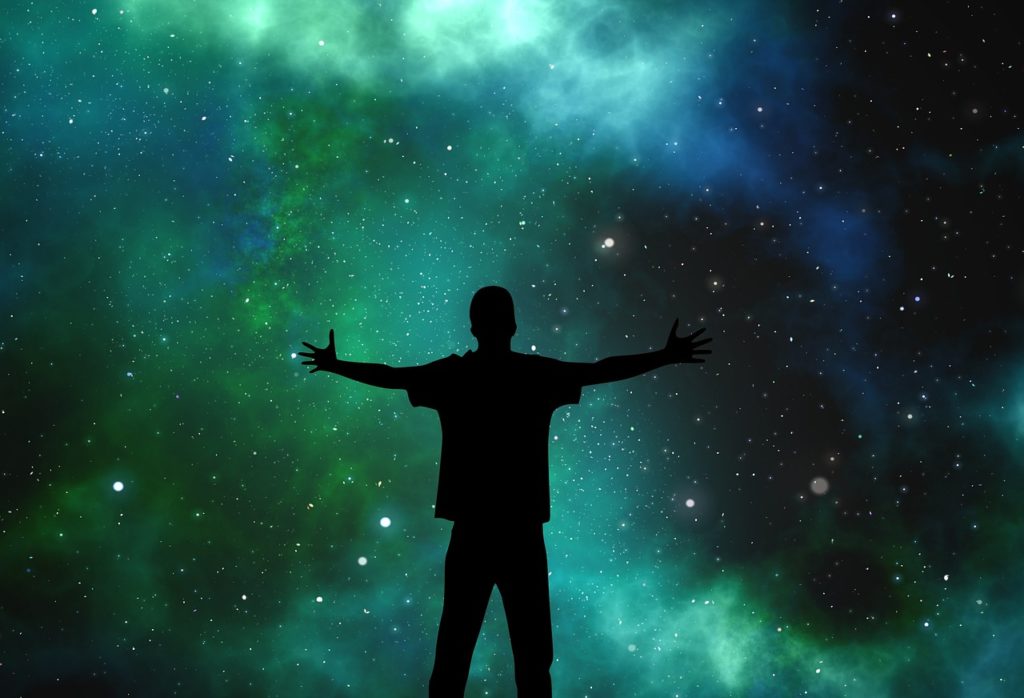

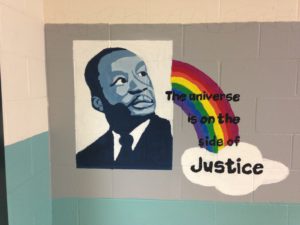
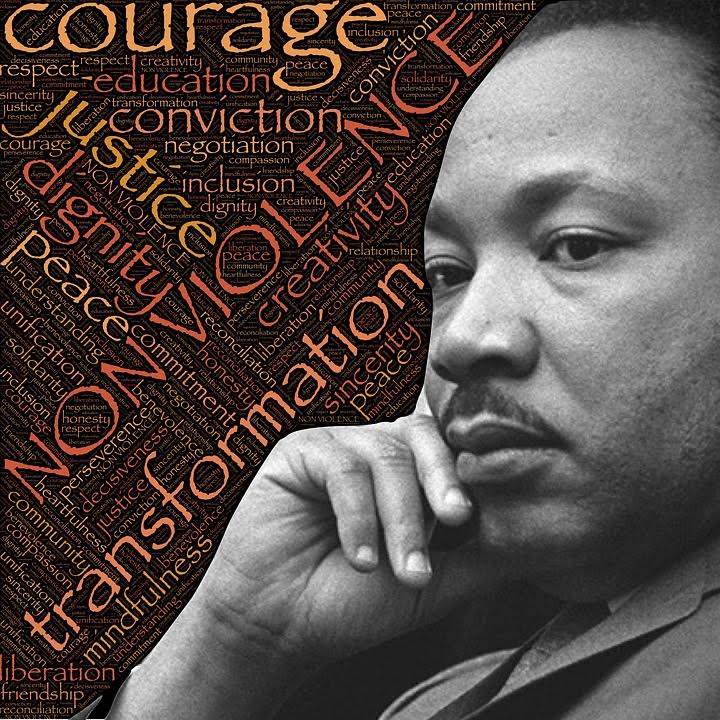
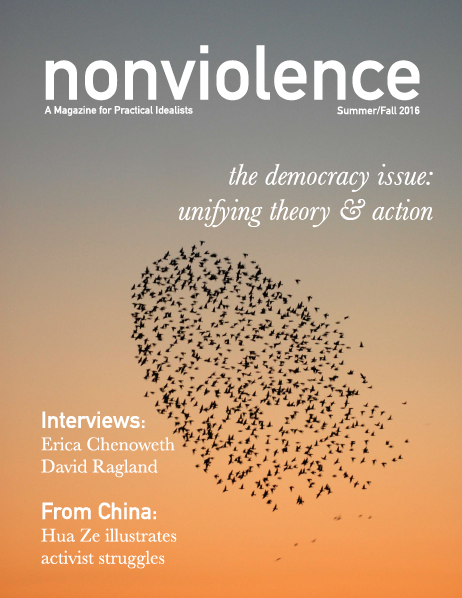 For the Summer/Fall issue of Nonviolence, we look at democracy—unifying theory and action.
For the Summer/Fall issue of Nonviolence, we look at democracy—unifying theory and action.